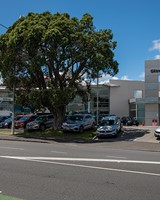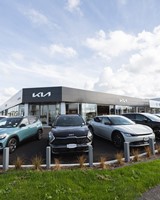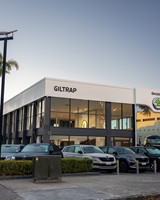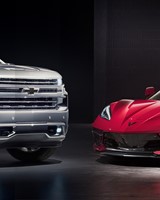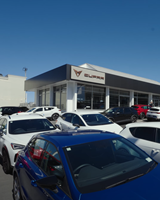With reduced lifetime running costs and reduced or zero emissions, it is easy to see why fully electric and hybrid vehicles are growing in popularity. With charging times decreasing and range increasing, EV ownership has become easier than ever. Even better, the growing number of both hybrid and full EV options ranging from seriously high performance, luxury, and practical everyday transport, means there is an EV to suit nearly everybody.

Quick Links

100% Electric by price
FAQ's about Electric Vehicles
If you're considering buying an electric or hybrid vehicle, you probably have many questions about how they work and what to expect. Our FAQs aim to provide you with the information you need to make an informed decision. Whether you're a first-time EV buyer or simply curious about the technology, our FAQs on electric and hybrid vehicles are a great place to start.
The time it takes to charge an electric car battery depends on several factors, such as the battery size, the charging rate, and the type of charger used. A standard home charger can take anywhere from 8 to 12 hours to fully charge a typical electric vehicle, while a fast charger can charge the battery up to 80% in as little as 30 minutes. Rapid chargers, which are typically found at public charging stations, can charge the battery even faster, in as little as 20 minutes. However, the charging time can vary depending on the vehicle and its battery capacity. It's important to check your vehicle's manual for specific charging instructions and to plan ahead for longer trips, considering the time required to charge your electric car battery.
Kiwis can easily find public charging stations for their electric vehicles using a variety of online resources. The PlugShare website and mobile app, for example, provide a comprehensive map of public charging stations across New Zealand. The ChargeNet website also offers a map of their fast charging stations. Many electric vehicle manufacturers also have their own apps or websites that can locate charging stations and offer additional features such as real-time updates on availability and charging speeds. It's also a good idea to check with your local council, as they may have additional charging stations in the area. With a growing number of public charging stations across the country, it's becoming easier than ever for New Zealanders to enjoy the benefits of electric vehicles.
Yes, it is possible to take your electric vehicle on a road trip or through backcountry areas in New Zealand. With a growing network of public charging stations across the country, it's becoming easier to plan longer trips and navigate more remote areas. However, it's important to plan ahead and be aware of the range limitations of your electric vehicle, as well as the locations of charging stations along your route. It's also a good idea to carry a charging cable and adapter, in case you need to charge from a standard power outlet in a pinch. With some preparation, taking your electric vehicle on a New Zealand road trip or through backcountry areas can be an enjoyable and rewarding experience.
If you find yourself unable to locate a charging station for your electric vehicle, there are a few things you can do. Firstly, try to conserve energy by reducing your speed and avoiding using air conditioning or other high-power systems. If you have a mobile phone signal, use an app or website to locate the nearest charging station. If you're in a remote area without mobile coverage, try asking locals or nearby businesses for help. In some cases, you may need to arrange for a tow truck or flatbed trailer to transport your vehicle to the nearest charging station. It's important to plan ahead and be aware of the range limitations of your electric vehicle, as well as the locations of charging stations along your route, to avoid running out of charge in the first place.

























